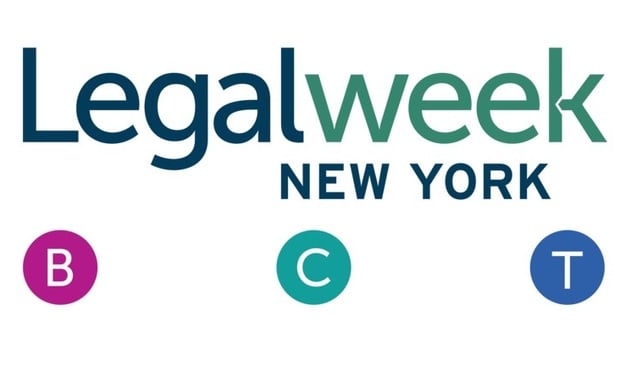'Skills Over Schooling': What Makes a Good Legal Ops Applicant?
As part of the Legalweek 2020 Q&A series, Legaltech News speaks with Richard Robinson, director of legal operations and litigation Support at Toyota, on skills legal ops professionals need to have, common misconceptions in legal technology, and more.
December 04, 2019 at 11:00 AM
4 minute read

The legal operations space is one of the most unique and exciting you'll find in the entire legal profession. It's an interesting mix in that it's crucial, with legal departments continuously acting more like a business, but also nascent with many departments just beginning to ramp up an operations function. That means, for those looking at switching careers and finding jobs in the space, now may be the time to strike.
 Richard Robinson. Courtesy photo.
Richard Robinson. Courtesy photo.As part of the run-up to Legalweek 2020, Legaltech News is chatting with a number of speakers from this year's sessions to know. Today's Q&A is with Richard Robinson, director of legal operations and litigation Support at Toyota. His Legaltech session "Career Up! LegalOps for eDiscovery Professionals & Tech Wonky Attorneys" will take place on Wednesday, February 5, at 11 a.m.
The questions and responses below have been edited for clarity.
Legaltech News: What do you think legal tech looks like in 10 years? What will be the biggest opportunities and challenges?
Richard Robinson: I believe that in ten years, legal technology will have continued to progress in many areas, including automation, artificial intelligence, data compression and data delivery, making the legal professional of the next decade more mobile and agile than ever. The challenge, clearly, will be to keep up with the advances, but for those who do, the opportunities will be boundless.
What is the biggest misconception you think still persists about legal technology?
The biggest persistent misconception is that technology is designed to replace jobs. Legal technology is designed to enhance the practice of law, enabling the tech-savvy practitioner to manage bigger tasks with more data in less time and at a lower cost.
For somebody looking at legal ops as a career path, what's one thing they might not expect when applying, but absolutely should know?
A lot of legal ops roles are being created in a vacuum. Just because a job description may have some "requirements" that are not necessarily on your resume, don't rule them out. Many times, the right applicant will help define the role.
Do you prefer applicants with a JD? MBA? Tech certifications? Or is it a matter of skills over schooling?
I absolutely look for skills over schooling. The best candidates for e-discovery and legal ops roles have a strong understanding of law, technology and business. Where that knowledge is derived from is less important than the quality of the knowledge and the demonstrated ability to use all three.
What are some of the skills you've seen in legal ops professionals that lend to a higher probability of success?
There are three pillars of legal operations: people, process and technology. The most successful professionals in the space are those with a passion for solving problems, an ability to grasp new and ever-changing technology and, perhaps most importantly, an ability to communicate those things with non-technical professionals in a way they can understand.
What do you hope attendees take away from your Legalweek session?
My session is about expanding your horizons and being ready for what happens next in your career. If I were to hope for one thing for attendees of my session to take away, it would be that their eyes are opened to the career building opportunities that already exist around them or just outside their existing sphere of influence.
This content has been archived. It is available through our partners, LexisNexis® and Bloomberg Law.
To view this content, please continue to their sites.
Not a Lexis Subscriber?
Subscribe Now
Not a Bloomberg Law Subscriber?
Subscribe Now
NOT FOR REPRINT
© 2025 ALM Global, LLC, All Rights Reserved. Request academic re-use from www.copyright.com. All other uses, submit a request to [email protected]. For more information visit Asset & Logo Licensing.
You Might Like
View AllTrending Stories
Who Got The Work
J. Brugh Lower of Gibbons has entered an appearance for industrial equipment supplier Devco Corporation in a pending trademark infringement lawsuit. The suit, accusing the defendant of selling knock-off Graco products, was filed Dec. 18 in New Jersey District Court by Rivkin Radler on behalf of Graco Inc. and Graco Minnesota. The case, assigned to U.S. District Judge Zahid N. Quraishi, is 3:24-cv-11294, Graco Inc. et al v. Devco Corporation.
Who Got The Work
Rebecca Maller-Stein and Kent A. Yalowitz of Arnold & Porter Kaye Scholer have entered their appearances for Hanaco Venture Capital and its executives, Lior Prosor and David Frankel, in a pending securities lawsuit. The action, filed on Dec. 24 in New York Southern District Court by Zell, Aron & Co. on behalf of Goldeneye Advisors, accuses the defendants of negligently and fraudulently managing the plaintiff's $1 million investment. The case, assigned to U.S. District Judge Vernon S. Broderick, is 1:24-cv-09918, Goldeneye Advisors, LLC v. Hanaco Venture Capital, Ltd. et al.
Who Got The Work
Attorneys from A&O Shearman has stepped in as defense counsel for Toronto-Dominion Bank and other defendants in a pending securities class action. The suit, filed Dec. 11 in New York Southern District Court by Bleichmar Fonti & Auld, accuses the defendants of concealing the bank's 'pervasive' deficiencies in regards to its compliance with the Bank Secrecy Act and the quality of its anti-money laundering controls. The case, assigned to U.S. District Judge Arun Subramanian, is 1:24-cv-09445, Gonzalez v. The Toronto-Dominion Bank et al.
Who Got The Work
Crown Castle International, a Pennsylvania company providing shared communications infrastructure, has turned to Luke D. Wolf of Gordon Rees Scully Mansukhani to fend off a pending breach-of-contract lawsuit. The court action, filed Nov. 25 in Michigan Eastern District Court by Hooper Hathaway PC on behalf of The Town Residences LLC, accuses Crown Castle of failing to transfer approximately $30,000 in utility payments from T-Mobile in breach of a roof-top lease and assignment agreement. The case, assigned to U.S. District Judge Susan K. Declercq, is 2:24-cv-13131, The Town Residences LLC v. T-Mobile US, Inc. et al.
Who Got The Work
Wilfred P. Coronato and Daniel M. Schwartz of McCarter & English have stepped in as defense counsel to Electrolux Home Products Inc. in a pending product liability lawsuit. The court action, filed Nov. 26 in New York Eastern District Court by Poulos Lopiccolo PC and Nagel Rice LLP on behalf of David Stern, alleges that the defendant's refrigerators’ drawers and shelving repeatedly break and fall apart within months after purchase. The case, assigned to U.S. District Judge Joan M. Azrack, is 2:24-cv-08204, Stern v. Electrolux Home Products, Inc.
Featured Firms
Law Offices of Gary Martin Hays & Associates, P.C.
(470) 294-1674
Law Offices of Mark E. Salomone
(857) 444-6468
Smith & Hassler
(713) 739-1250






